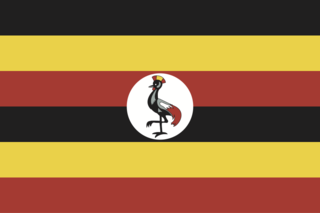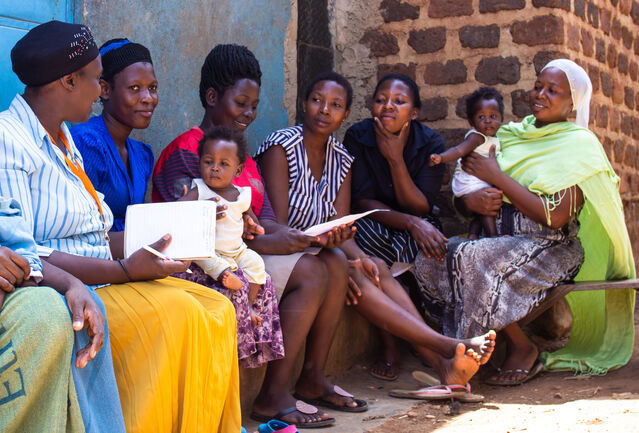Depression
They Called Me Lazy: Addressing Depression Stigma in Uganda
Using talk therapy to address low mood in low-income women and adolescents
Posted September 3, 2021 Reviewed by Tyler Woods
Key points
- The StrongMinds Uganda program demonstrates the capacity to achieve mental health outcomes in low resource countries through use of volunteers.
- Community leaders play a key role in the establishment of effective NGO mental health programs in low resource settings.
- Tens of thousands of people are estimated to have benefitted from outreach programs utilizing social media and radio.
Guest Author: Christina Angela Ntulo – Deputy Country Director for StrongMinds Uganda

In Africa, and especially Uganda, acknowledging that one is depressed is not easy. Lack of emotional literacy skills, stigma towards mental illness, and the misconception that depression is an illness for the privileged may prevent people from getting the help they need.
I have been treating mental health issues in Africa for the past two decades, most recently as Deputy Director for StrongMinds Uganda. We treat depression in low-income women and adolescents using free group talk therapy.
Many of the women we treat for depression report that they thought that living with sadness, emotional heaviness, or guilt was a regular part of struggling through their everyday lives. Some even rationalize depression as a consequence of the poor decisions they had made, or simply ascribed to fate.
Terms for Depression in Uganda
Uganda is home to 41 languages, each describing depression somewhat similarly. Luganda, for example, is one of the languages widely spoken around the capital city of Kampala and its neighboring districts. The word Enyike describes a deep sadness, despondency, or a life situation characterized by deep or heavy negative thoughts. It is a condition that affects sleep, appetite, and the ability to participate in activities that bring happiness or meaning to a person’s life.
The Acholi, in northern Uganda, use the term Two Tam to describe depression. According to our clients, Two Tam is a condition characterized by sadness, confusion, lack of concentration, forgetfulness, and overthinking that affects sleep and eating habits.

The Bagisu from the Elgon region in Eastern Uganda speak several dialects, one of which is Lumasaba. In this dialect, depression is called Ibibaso bikali or Kumutambo Kumukali, describing a person who is going through too much sorrow and sadness, is no longer interested in life or its events, and experiences feelings of worthlessness. They relate this condition to grief and significant loss of property or broken relationships. None of the cultures equate depression to an illness like malaria, hypertension, or other physical ailments. Instead, symptoms of depression are attributed to laziness, personality defects (we often hear clients or leaders referring to people with depression as having weak minds), and being bewitched or cursed. Addressing this misconception is the first step to closing the treatment gap for depression.
Training Community Volunteers
At StrongMinds Uganda, we work with local leaders and community health volunteers from rural areas and the low-income settlements of Kampala to teach women about depression, how it affects their lives, and how it can be managed or treated. Most of these local leaders have at least two leadership roles in their community through religious groups, health programs, school programs, or livelihood initiatives supported by the government or NGOs. They are typically attached to a health center, a school, a local religious center, the community development office1, or NGO programs. Their leadership roles give them direct access to many community members who trust them to deliver accurate information on the services or programs that they represent. It is these leaders that StrongMinds trains to educate community members on depression. Their training focuses on helping them change their own perceptions about depression, comparing it to other chronic illnesses managed in the community. The underlying message is that depression is an illness with a classic set of symptoms: it has a diagnostic tool, a treatment protocol, and people can recover and thrive.
Once convinced, these leaders go into their communities and talk to relatives, neighbors, and friends about depression. They use a case vignette from the World Health Organization’s MHGAP Community manual as a conversation starter. The case vignette focuses on a woman displaying symptoms of depression and how they affect her ability to cope with the everyday stresses of life.
Screening and Making Referrals
There are two outcomes to these community education sessions, the first being that those who identify with the case vignette will request to know more about depression. The community leader will set aside time to meet with them individually, educate them further, and screen people seeking help using the Patient Health Questionnaire 4. Those who meet the threshold for further screening are referred to a StrongMinds Mental Health Facilitator or a trained Community Facilitator. The second outcome is that a community member will refer the community leader to a relative or friend whose behavior is similar to those described in the case vignette. These individuals will also be screened to assess their depression symptoms and if they need further treatment.
In 2020, StrongMinds incorporated media and digital resources to educate the general public about depression. StrongMinds Uganda founded radio talk shows (a radio program in which one of the staff is interviewed about depression while on air) and radio audio magazines to effectively provide accurate information to the public. These talking points complement the community leaders' awareness-raising efforts and offer an option for the public to sign up for group teletherapy via a USSD code.
Our female clients have reported that learning about depression did two things for them: it affirmed their suspicions that they are not well and don't know what to do about it, and secondly, it allowed them to take on a recovery role, being a patient who needs to receive treatment to overcome these symptoms.

Mental Health Literacy
Providing accurate information about depression and challenging stigma is essential in addressing the treatment gap. Uganda has successfully used public awareness campaigns and targeted community education to improve access to treatment for HIV, tuberculosis, malaria, and universal access to immunization for children under one year old, and to address social problems like universal school enrollment. The same strategy can be used for depression, especially since it has broad consequences for the woman and her children if left untreated. Research shows that women who suffer from depression are less likely to perform their caregiving roles and their children are less likely to attend school regularly.
Through targeted, awareness-building activities and community education, StrongMinds Uganda has educated tens of thousands of community members over eight years. In 2020, 16 million people were reached through digital, broadcast, and social media during our public education campaign. The impact of this targeted approach to community education is:
- Addressing the misconceptions attached to depression.
- Normalizing depression as an illness with a specific set of symptoms that can be treated.
- Increasing demand for group talk therapy services.
- Improving referrals for people with complicated depression, other mental illnesses, and better management for those with suicidal ideation.
References
[1] This office is also responsible for community welfare and probation. It works with local leaders to address issues of child protection, safeguarding, gender-based violence as well as self-help.




